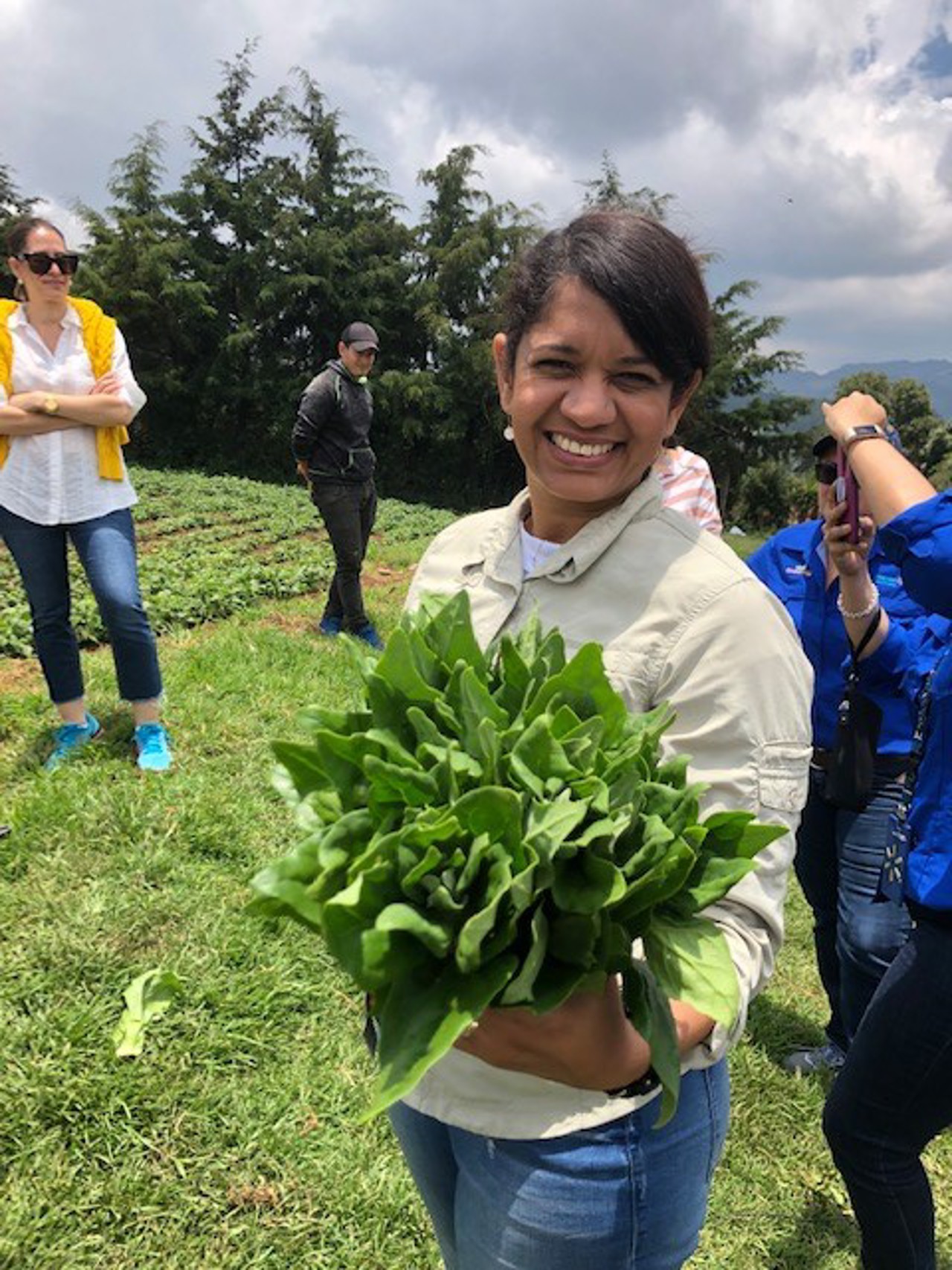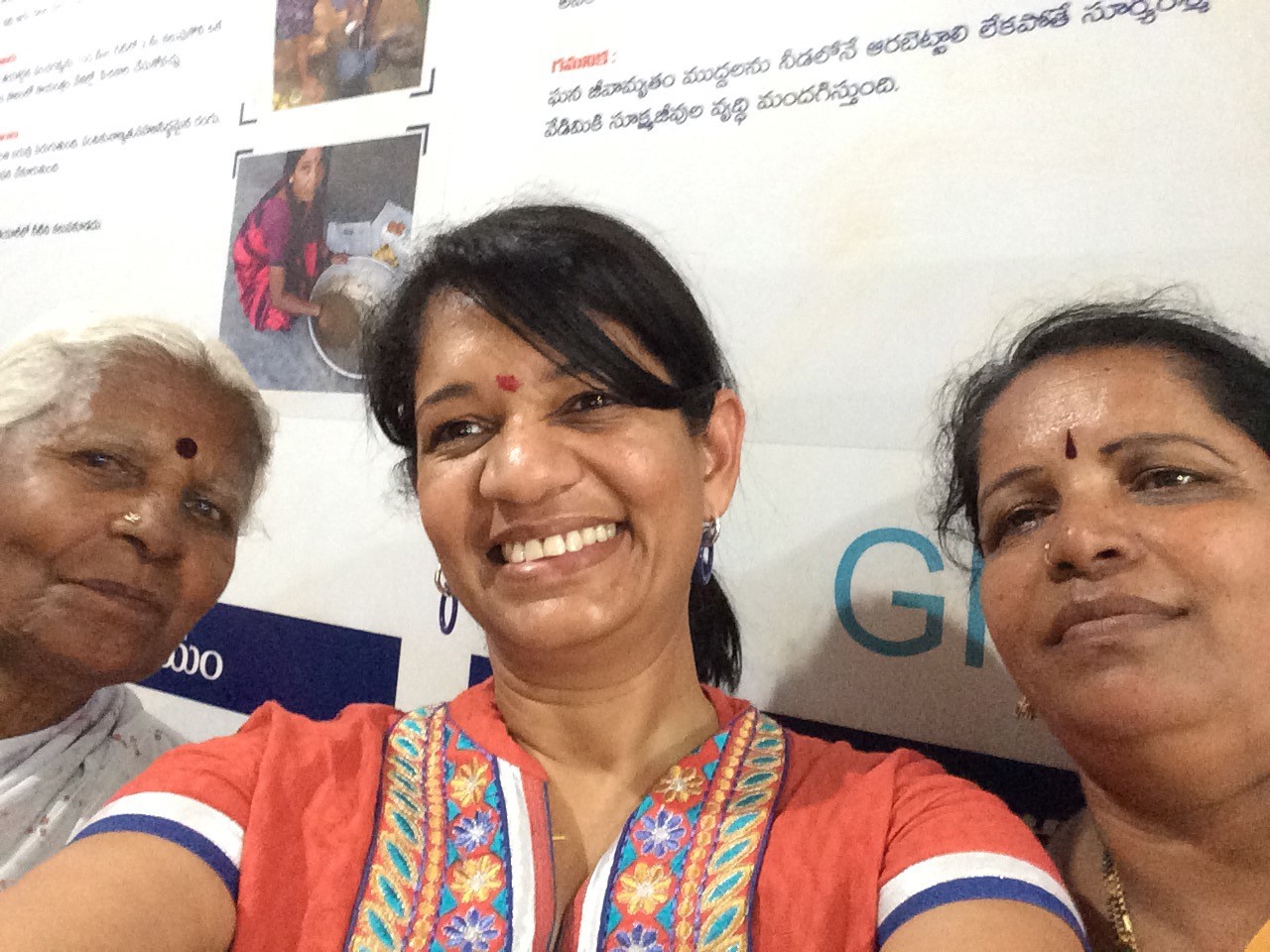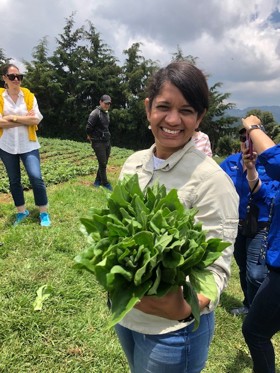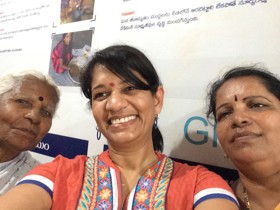Born in Pietermaritzburg in what was then the Natal province (now KwaZulu-Natal), Sherry-Lee Singh studied at the University of KwaZulu-Natal before going to Oxford to read for an MPhil in International Relations. Following a period in management consulting, she began working on U.S.-Africa trade with the Corporate Council on Africa in Washington, DC and then went on to be part of the Gates Foundation’s initiatives on agriculture development in Sub-Saharan Africa. For the last decade, Singh has been with Walmart, where she currently leads the strategy and team responsible for building an inclusive supply chain. She is also a family partner in fundraising for research into childhood brain cancers, working to honour her daughter Karisa, who lost her battle with DIPG in 2022. This narrative is excerpted from an interview with the Rhodes Trust on 27 January 2025.
Sherry-Lee Singh
KwaZulu-Natal & St Antony's 2002




‘Education was just a really important part of my psyche from a very young age’
I was born under a so-called coloured identity. At that time, the apartheid system still existed in South Africa and I lived in a segregated neighbourhood inside of Pietermaritzburg which also impacted where I went to school and how I lived my life with my family and my community. My mum and dad had had me when they were just out of high school and my mum was training to be a nurse, living in a residence programme at the same hospital I was born at. That nursing school was set aside for so-called coloured people and Indian people to be able to train.
As a little baby, I was sent to stay with my grandmother. It was a very sheltered and limited experience but also very sweet in that I had a sense of joy, having the full attention of my grandmother and spending my early childhood in her home, enjoying her back yard, planting vegetables. My grandmother was always very industrious and resourceful with limited resources. She had a very limited education and had come from a very impoverished background – I remember, for example, when documents came to the house, she would sign her name with an X – and in the years we lived with her, we had limited infrastructure in the house, so, cold water but not hot water.
My first educational experiences were with my father. He was in and out of job opportunities at that time, trying to figure out a trade, and he would teach me at home on a blackboard. I knew that my dad valued reading and writing and that my mother was studying, and education was just a really important part of my psyche from a very young age. By the end of primary school, I was really excelling. I was also very intrigued about place and what else was out there in the world, and I think that had a lot to do with how restricted my space and my movement and my community’s movements were at that time. But at school, we didn’t discuss politics, and it was only when the referendum was being held in South Africa about calling a national election that I realised something was really happening. At the age of 15, I transferred over to a new high school, a former whites-only school and that gave me exposure to university pathways because the curriculum was broader.
On applying for the Rhodes Scholarship
I went on to the University of KwaZulu-Natal in Pietermaritzburg. The new South Africa was blooming at that time. It was very, very hopeful, and my eyes were wide open to be on a big campus like that. I had thought about studying theatre, but my mother encouraged me to choose a practical career so that I could support myself. I studied political science and law, although I knew very quickly that I would not want to pursue a career in legal studies. I loved political science, though, because for the first time, I was learning African history, which was incredible for me. I also leaned into the opportunities there to do volunteer and community service work.
My first experience of leaving South Africa was when I was awarded an academic fellowship to attend an internship programme in the US, in Washington, DC. I really got the bug and wanted to work on global affairs, and when I came back to South Africa I started to look for scholarships that would allow me to continue my studies abroad, and that’s when I saw a poster for the Rhodes Scholarship. I only knew the name ‘Rhodes’ in reference to what little as a child I knew about Rhodesia. I remember how thoughtfully I prepared for the interviews, reading, dressing professionally. I was just in awe of the people who were going to be interviewing me, but they were productive conversations. When I got the call to say I’d been selected, I was incredibly happy.
‘I was in a very dynamic class with very ambitious students’
It was so exciting to come to the UK and I remember St Antony’s being an extremely welcoming environment. I felt instantly at home. I had enrolled on the MPhil in international relations. I was in a very dynamic class with very ambitious students and although I had some anxiety, there was a sense of comradeship. Professor Ngaire Woods (New Zealand & Balliol 1987) was actually my thesis supervisor, and she was an incredible role model, just a wonderful professional. I focused my undergraduate research on the issue of the infrastructure and the development pathway that would be needed to develop the new South Africa. At Oxford, I focused on the question of what would be possible for the future of trade between the US and Africa.
Alongside my studies, I had a lot of fun time at Rhodes House. I enjoyed being a member of the Rhodes Scholars Southern Africa Forum. I was also a member of the Africa Society, and they threw the best bops in all of Oxford, in my opinion. I played soccer on the St Antony’s College football team, and we practised even in the rain and the mud. In England, you just keep going, come rain or shine!
‘I found myself getting a lot more hopeful about what was possible’
After Oxford, I knew I wanted to pursue a career in US-Africa trade. I did management consulting while I looked for the right opportunity and then I got a job with the Corporate Council on Africa in DC, doing exactly the work I had wanted. My job was basically to educate US businesses so that they could understand the opportunities that they could unlock with African countries. One of the highlights was being able to be a project manager for the first US-Liberia trade conference. It was great to broker conversations and engagement with the goal of driving shared prosperity between the two regions.
I found myself getting a lot more hopeful about what was possible and I wanted to get closer to the development nexus that looks at impact on people and livelihoods. I started looking at the connection between agriculture and industrial development, and that led me to my next part of my career with the Gates Foundation, working on project management on the African continent beyond South Africa.
For the past ten years, I have been at Walmart. I had known that colleagues on the Gates agriculture team were having conversations with some of the Walmart team about making a successful entry into working in Sub-Saharan Africa, and that was around that time that Sylvia Matthews Burwell (West Virginia & Worcester 1987) moved from the Gates Foundation to become president of Walmart Foundation. At Walmart, I first started working at Massmart in South Africa on local supply chain opportunity and later went on to be a philanthropy officer, leading several international giving programmes. Currently, I’m senior director of supplier inclusion and sourcing, and that has brought me full circle back to looking at small- and medium-sized businesses and inclusion in the supply chain.
‘I still draw on the inspiration and example of my grandmothers’
The Rhodes network really did pay it forward to me in taking their time to open their networks to me. That’s why I focus on mentorship and extending my network today. And I still draw on the inspiration and example of my grandmothers: you don’t need a lot of resources, but you really need intention with the resources that you have in front of you. I think when you’re given opportunities, you need to engage and show gratitude but also give back through those opportunities. So, I find different ways to engage in community service in my personal and in my professional life.
I have had a number of extremely difficult challenges, especially in growing my family. I had a beautiful daughter, Karisa, who lived to the age of five but at the age of two was diagnosed with a terminal brain cancer. It was a heart-wrenching experience to go through that and I am still going through it, but when you face setbacks in life, you have to find the agency in a setback and then use that to propel you forward. Now, my focus is on working with others to raise funds for research into a cure. It’s a hard lesson that our lives are very precious. What matters is how we lean on each other and find community.
